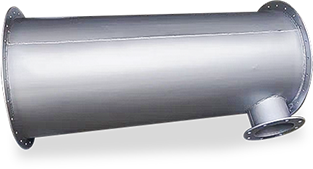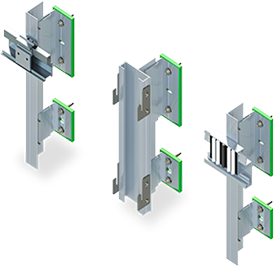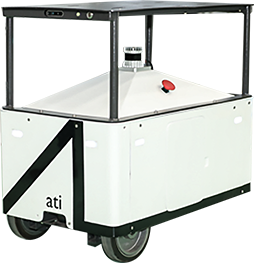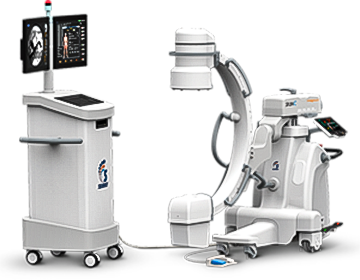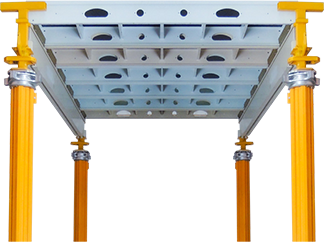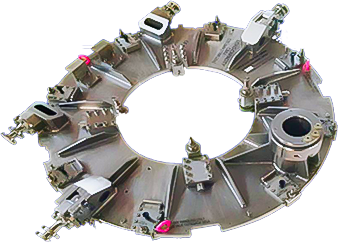
The question for hygienic food many times arises for foods prepared by cooking robots in automated kitchens. Will the metallic and plastic elements leach into food? Will it react with the food? The cooking robots are manufactured using specific materials known as ‘food-grade’ materials and in accordance with national and international standards. Let’s know in detail.
What is food grade material?
Food grade material is a material that is suitable to come in direct contact with the food i.e. it isn’t made up of toxic elements. Some food grade materials are Nylon, Delrin, PTFE (Teflon), HDPE, PET, LDPE, Acrylic, etc. that comes in contact with the food.
Even though the materials are food-grade, it can leach its constituent materials under certain conditions and can be termed as unsafe for food applications. Below section shows the conditions under which the food grade material is likely to leach its constituent elements.
Leaching of chemicals from food-grade materials
Leaching of chemicals from non-stick cookware
Non-stick cookware is prepared by spraying a coating polymer on aluminum, stainless steel or cast iron. The coating polymer is made up of poly-tetra-fluro-ethylene (PTFE) commonly known as ‘Teflon’. When exposed to high temperature, the coating releases harmful polymers and gases. See the below table to know the effects of PTFE at those temperatures.
| Temperature(C) | Normally used for |
|---|---|
| 177 | Common baking temperature |
| 260 | The searing temperature for meat in oven or grill. The maximum temperature for many ovens |
| 371 | Preheated grills |
| 399 | Surface temperature of PTFE-coated pan after heating for 8 min on conventional stove |
| 427 | Electric coil on range top |
| 816 | Broiling temperature for high-end ovens |
| Temperature(C) | Observations |
|---|---|
| 162 | Birds died from the pre-heated oven. |
| 290 | Ultrafine particles released |
| 360 | Gases released and toxic effects 1. Tetrafluoroethylene (TFE); animal carcinogen 2. Hexafluoropropene (HFP); toxicant to workers 3. Trifluoroacetic acid (TFA); poisonous to plants 4. Difluoroacetic acid (DFA); toxicant to animal kidneys 5. Monofluoroacetic acid (MFA); lethal to humans at low doses 6. Perfluorooctanoic acid (PFOA); animal carcinogen |
Leaching of aluminum from aluminum utensils
Research shows that hard anodized aluminum utensil reports negligible leaching of aluminum as compared to stainless steel, aluminum, and indolium utensils. In order to reach this conclusion, various foods like sambar, tomato soup, chicken curry, mutton curry, kheer, and kadhi were cooked in all the four vessels (hard anodised aluminum, aluminum, stainless steel, indolium). This study also concludes that leaching of aluminum is higher in acidic medium like kadhi, tomato soup, and sambar.
The above research shows the conditions under which food grade materials are safe to use. But, a manufacturer can’t just rely on research. The manufacturer needs to get the materials certified according to the standards.
Standards for food contact materials
The standards for food contact materials are provided by National Sanitation Foundation (NSF), American National Standards Institute (ANSI), Food and Drug Administration (FDA), etc.
Below images includes the list and scope of NSF certifications and FDA certifications.






For more details, visit – NSF Food Equipment Standards and
FDA CFR 21 – 177: Indirect Food Additives – Polymers
https://www.govinfo.gov/content/pkg/CFR-2012-title21-vol3/pdf/CFR-2012-title21-vol3.pdf
Since the cooking robots are manufactured with ‘food-grade’ materials and with adherence to international standards, a consumer can be assured that the food produced is hygienic and safe.
Perfect manufacturer for your kitchen automation products
Karkhana.io has a wide network of suppliers who are equipped to not only help kitchen automation companies with basic requirements such as custom sheet metal fabrication and custom CNC machining services for their products but also extremely sensitive elements such as food safe material grades and food safe manufacturing in general.
Karkhana.io is a flexible & scalable manufacturing solutions provider that can cater to all your manufacturing needs.
Our flexible manufacturing services enable us to service client orders of all sizes from small batches to large volumes. We also help many of our clients in solving complex product assembly and localization problems.
We have an extensive, cutting-edge experience with all manufacturing services like CNC machining, 3d printing, Sheet metal fabrication, Injection moulding, and Vacuum casting.
We cater to every manufacturing need across industries like Aerospace, Automation, Automobile, Defence, Drone, Energy, EVs, FMCG, General Engineering, Medical, Oil & Gas, Pharma, and Robotics.
Partner with us to bring speed to your manufacturing. Talk to us about your manufacturing needs by filling up the form below or get in touch with Alay at alay@karkhana.io.




